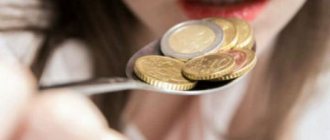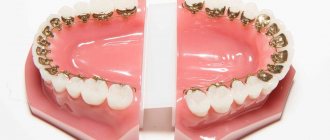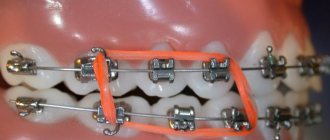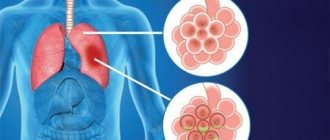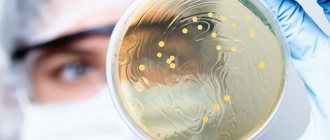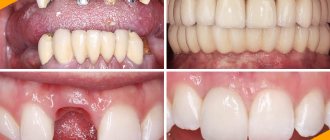sour taste in mouth
heartburn
gastritis
If a person, without consuming any food or drink, feels a dubious taste in his mouth other than a neutral one, then this, with a 90% probability, indicates the development of abnormalities in the digestive system. Depending on the nature of the pathological changes, the taste can be sour, sweet or bitter. If this symptom occurs, immediate consultation with a gastroenterologist is recommended, and in some cases, consultation with an endocrinologist or hepatologist may be required.
Why does my mouth hurt?
Pain in the mouth can be caused by both local and systemic factors. Painful sensations in the oral cavity usually do not bother you in isolation. As a rule, they are combined with other symptoms characteristic of a certain pathology: hyperemia and swelling of the mucous membrane, rashes and ulcers in the oral cavity, plaque, unpleasant odor, difficulty chewing and opening the mouth, and salivation. Pain in the mouth, despite its local nature, disrupts general well-being and performance, and prevents normal diction and proper food intake.
Lip pain
Is local or diffuse in nature. It can be caused by traumatic, infectious, chemical, physical factors, or tumor lesions. The pain is usually combined with dry lips, cracks, redness, blistering rashes, ulceration, and dry crusts. Common causes of lip pain:
- Cheilitis.
It may be a consequence of sensitization (allergic cheilitis), neurogenic causes (exfoliative, macrocheilitis), unfavorable climatic factors (meteorological cheilitis), vitamin deficiency (hypovitaminous cheilitis), infection (glandular cheilitis). Common signs are damage to the red border, accompanied by dryness, painful cracks and ulcers, swelling, burning, itching. - Labial herpes.
In the prodromal period, local tingling, tingling, itching in the area of the upper or lower lip is noted. Then a bubble containing liquid appears. After spontaneous or forced opening of the vesicle, an ulcer forms in its place, which dries out and becomes covered with a scab. When the crust cracks, ichor oozes out from under it. Elements of herpes are sharply painful at all stages. It takes 10-12 days from the prodrome to complete epithelialization. - Lichen planus.
May affect the red border of the lips, tongue, and oral mucosa. The main elements are papules, which, when fused, form whitish areas of keratinization. Sometimes LLP occurs with the formation of weeping areas, erosions, blisters - in these cases, a burning sensation and severe pain in the mouth are added, making it impossible to eat. - Trigeminal neuralgia.
Trigeminal neuralgia is a common cause of facial pain. When the maxillary and mandibular branches of the trigeminal nerve are damaged, sharp, intense shooting pains in the cheek, upper or lower lip, or jaw, reminiscent of electric shocks, may occur. - Injuries.
Lip burns can be caused by drinking hot drinks, exposure to harsh chemicals, or exposure to sunlight or open flames. With mild burns, pain, swelling of the lip, and hyperemia appear; in severe cases, blisters, scabs, and tissue necrosis form. Mechanical damage (cuts, biting) to the lips is accompanied by pain and bleeding. - Lip cancer.
Externally it may appear as a warty or papillomatous growth or infiltrate. At first, the elements do not cause discomfort, but their ulceration, infection, and decay are accompanied by severe pain in the mouth.
Transient swelling and soreness of the lips are observed after a number of cosmetic procedures and surgical interventions: permanent makeup, piercing, injection of hyaluronic fillers, cheiloplasty.
Mouth pain
Pain in gums
As a rule, it is associated with diseases of the oral cavity or behavioral factors (incorrect selection of a toothbrush, use of toothpicks, smoking). Pathologies that cause pain in the gums:
- Inflammatory processes.
Painful sensations in the mouth are a pathognomonic sign of inflammatory diseases: gingivitis, stomatitis, periodontitis. With gingivitis, the gums become swollen, painful, and bleeding. Stomatitis can occur with the formation of plaque in the mouth, extremely painful aphthae and ulcers. With periodontitis, pain in the gums is aggravated by bad breath, the formation of periodontal pockets, suppuration, and loosening of teeth. - Periodontitis.
In acute periodontitis or exacerbation of a chronic process, painful swelling of the gums occurs in the area of the affected tooth. When the pyogenic flora is activated, a flux is formed, accompanied by throbbing pain. When it is opened, a fistula may form. Severe pain occurs during chewing and speaking. - Injuries.
Damage to the gums can occur both from direct mechanical impact and from difficult tooth eruption. In the latter case, pericoronitis develops. Injury to gum tissue and pain are also accompanied by dental procedures: tooth extraction, installation of a dental crown/prosthesis, dental implantation, operations (gingivotomy, gingivoplasty, etc.). - Allergy.
May be caused by a reaction to denture materials, medications, or local anesthetics. It occurs in the form of allergic stomatitis, cheilitis, glossitis. Characterized by hyperemia, burning, swelling of the mucous membrane, hypersalivation, pain when eating.
Tongue pain
Pain in the tongue is associated with local infectious-inflammatory, traumatic, allergic, neurogenic, and neoplastic processes. In addition to local factors, pain in the mouth can be provoked by systemic diseases: hypovitaminosis B1, B2, B12, pellagra, iron deficiency anemia, collagenosis, leukemia, etc. Local causes of pain in the tongue:
- Glossitis.
Pain of varying intensity is observed with desquamative, candidal, herpetic, allergic, traumatic and other glossitis. Swelling, glossodynia, plaque, and changes in taste sensitivity may also occur. - Xerostomia.
It is a consequence of radiotherapy, chemotherapy, medication, smoking, Sjogren's disease, diseases of the salivary glands. Dry mouth makes eating, swallowing, and speaking difficult and painful. - Glossalgia.
It occurs with attacks of burning pain in the tongue, which are more pronounced in its tip and lateral surfaces. There is hyperemia or pallor of the tongue. Repeated painful attacks change the psychological state of patients - they become irritable, suspicious, and tearful. - Galvanism.
Develops as a result of irrational prosthetics. It is characterized by swelling and hyperemia of the tongue, sensations of pain, burning, rawness, and a metallic taste in the mouth. - Neuropathies.
Pain in the tongue of neurogenic origin occurs with neuralgia of the glossopharyngeal and hypoglossal nerves. In the first case, the pain is localized in the area of the root of the tongue, in the second - in the back of the tongue. More often it is unilateral in nature, occurs in paroxysms, and is provoked by talking, coughing, and swallowing. It has an intense pulsating, drilling, burning character. - Tongue cancer.
Manifests with the appearance of painless or slightly painful formations: growths, ulcers, compactions. In the advanced stage, local or diffuse pain occurs, radiating to the jaw, ear, and temporal region. Salivation increases, foul breath appears, spontaneous bleeding from the tongue, difficulty articulating and swallowing.
Dental diagnostics
How to identify the cause of a metallic taste in the mouth
Only a doctor can identify the correct medical causes and figure out why a metallic taste appears in the mouth after conducting appropriate studies and tests, so you should not hesitate to visit medical specialists.
Measures to identify the cause of unpleasant sensation in the mouth:
- biochemical and clinical blood tests to determine the level of various substances in the body (for example, if hemoglobin is low, this may indicate the development of anemia, a high creatinine level indicates kidney disease);
- a detailed dental examination, during which the general condition of the teeth and gums is determined;
- hormone level test;
- X-ray (used both in case of suspected diseases of the gastrointestinal tract and in the dental field);
- MRI, gastroscopy and various other methods depending on the type of disease detected.
Diagnostics
To determine the etiology and therapeutic tactics for pain in the mouth, a comprehensive dental examination is carried out, and, if necessary, an examination of the ENT organs. A number of specialists are involved in diagnosing the causes of pain in the mouth: dental therapist, periodontist, otolaryngologist, allergist-immunologist, neurologist, oncologist, etc. Taking into account nosology, the list of recommended studies includes:
- X-ray diagnostics (OPTG, CT of the jaws, sialography);
- dental examination (visual and instrumental examination, determination of periodontal index);
- ENT diagnostics (pharyngoscopy);
- sonography (ultrasound of the salivary glands, tongue);
- allergy examination (allergy tests, study of individual allergens);
- laboratory tests (analysis of the biocenosis of the oral cavity using bacterial culture, PCR).
Metal taste as a symptom of oral diseases
Patients with gum problems often complain of a strong metallic taste that occurs repeatedly throughout the day. The most popular diseases that provoke such unpleasant sensations include periodontitis and gingivitis, which are accompanied by bleeding gums, and many people describe the taste of blood as metallic. It usually appears during brushing your teeth and after eating. Some patients feel as if there is a foreign body in the mouth, which causes serious inconvenience.
Loose teeth and tartar build-up can also cause a metallic taste. There is no point in trying to independently identify the causes - it is better to immediately contact a dentist.
Treatment
Diseases accompanied by pain in the mouth require general and local therapy. In some cases, there is a need for surgical intervention. The following are used in treatment:
- Systemic therapy
: antibacterial, antiviral, antimycotic, antihistamines, NSAIDs, vitamins. - Local procedures:
rinsing the mouth with antiseptics, lubricating the mucous membrane with medicinal compounds, medicinal treatment and curettage of periodontal pockets, therapeutic bandages. - Physiotherapy:
medicinal electrophoresis, darsonvalization, gum treatment with laser, Vector device. - Dental treatment:
complex therapy of stomatitis, periodontitis, treatment of complicated caries, removal of decayed teeth, re-prosthetics of teeth in case of intolerance to orthopedic structures. - Dental operations:
releasing incision and periostotomy for periostitis; flap surgery for periodontitis; lip resection, hemiglossectomy and glossectomy for cancer.
Acid and bitterness
A bitter taste indicates a disruption of the liver and bile ducts. It may appear occasionally, but may bother you regularly.
Possible causes of a bitter-sour aftertaste:
- significant errors in nutrition - the liver is simply not able to cope with so many fatty, heavy, spicy foods, alcoholic drinks;
- alcoholism - the liver suffers first;
- treatment with aggressive drugs - a long course of antibiotics, antihistamines, and other medications;
- those who like to smoke a cigarette at night.
If we consider bitterness in the oral cavity in terms of the intended diagnosis, then most often it is cholecystopancreatitis, erosion of the mucous membranes of the stomach and intestines, gastritis.


